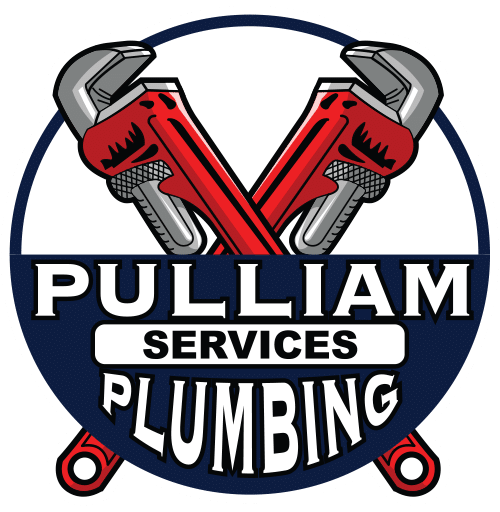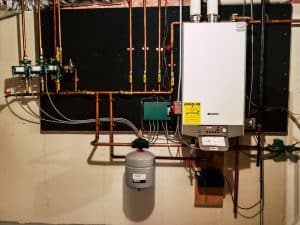A reliable water heater is essential for comfortable living, especially during those chilly months. By keeping it in top shape, you can ensure it runs smoothly and efficiently for years. Regular maintenance might seem like a chore, but it’s a task that pays off in the long run, preventing costly repairs and extending the life of your water heater.
Many homeowners neglect their water heaters, assuming these appliances don’t require much attention. However, overlooking routine care can lead to various problems, from inconsistent water temperatures to unexpected breakdowns. Understanding how to maintain your water heater properly can not only enhance its performance but also improve your home’s energy efficiency. Plus, it ensures you have hot water exactly when you need it. With a few simple steps, you can enjoy peace of mind, knowing your water heater is in good health.
Understanding Your Water Heater System
Water heaters come in various types, each with its own set of components. The most common are tankless and tank-style heaters. Tank water heaters heat a set amount of water stored in a cylinder, while tankless heaters heat water on demand, offering a continual supply. Key components of a water heater include the thermostat, heating element, and anode rod, which all play crucial roles in operation and maintenance.
Regular maintenance of your water heater keeps it running efficiently and extends its lifespan. Simple tasks like removing sediment buildup and checking the pressure release valve can prevent many issues before they start. Maintenance ensures consistent water temperature, lowers energy bills, and avoids the inconvenience of untimely breakdowns.
Be aware of common signs that indicate potential problems with your water heater. If you notice unusual noises, like popping or banging, it might mean sediment buildup. Water that doesn’t heat up or fluctuates between hot and cold can signal a faulty thermostat or heating element. Leaks around the base of the tank or rust-colored water are warning signs you should address quickly to prevent further damage.
Essential Water Heater Maintenance Tasks
Maintaining your water heater involves several key tasks. One crucial step is flushing the tank to remove sediment, which can build up over time and reduce efficiency. To do this, turn off the water heater and attach a garden hose to the drain valve at the bottom of the tank. Open the valve and let the tank drain completely to remove sediment. This process helps maintain water heater efficiency and extends its lifespan.
Next, inspect and replace the anode rod if necessary. The anode rod is a vital component that prevents rust and corrosion inside your water heater tank. Check it every couple of years by unscrewing it from the top of the tank. If it appears heavily corroded or measures less than half an inch thick, it’s time for a replacement. This simple, proactive effort can save you from more severe issues down the line.
Another important maintenance task is checking and adjusting the water heater’s temperature setting. Ideally, the thermostat should be set to 120 degrees Fahrenheit to provide optimal energy efficiency while reducing the risk of mineral buildup. Lowering the temperature slightly is also safer for families with young children, preventing potential scalding accidents. Regularly performing these maintenance tasks ensures your water heater operates smoothly and effectively, providing reliable hot water for your home.
Troubleshooting Common Water Heater Problems
Water heater issues can be a nuisance, but many common problems are relatively simple to fix. If you notice leaks around your water heater, start by checking all visible joints and connections. Sometimes, tightening these fittings can stop minor leaks. However, if leaks are coming from the tank itself, it might indicate corrosion, and you may need to consider replacing the unit.
Unusual noises like popping or banging are another sign of trouble, usually caused by sediment buildup at the bottom of the tank. Flushing the tank often resolves this issue. If the noises persist, they might indicate more significant problems, such as a failing heating element.
Inconsistent water temperature can be frustrating, often caused by a faulty thermostat or a failing heating element. First, check the thermostat settings and adjust them if necessary. If adjustments don’t improve performance, you might need to replace the thermostat or heating element.
If your hot water has a strange odor or discoloration, the anode rod might require attention. A worn anode rod allows bacteria to build up, causing unpleasant smells. Inspect and replace the rod to solve this problem. In severe cases, flushing the tank might also be necessary to clear any remaining bacteria or sediment.
Tips for Improving Water Heater Efficiency and Lifespan
To maximize the efficiency and lifespan of your water heater, start by insulating both the tank and the pipes. Pipe insulation helps retain water temperature, reducing the energy required to heat water and minimizing heat loss as water travels through your home. Insulating the tank can also prevent heat loss, leading to lower utility bills.
Regular professional inspections are crucial for maintaining your water heater. A professional can identify potential issues before they become major problems, saving you from costly repairs or replacements. Schedule inspections at least once a year for the best results.
Consider upgrading to an energy-efficient water heater model if your current heater is over a decade old. Modern units use advanced technology to heat water more efficiently, which can reduce energy consumption and lower your bills significantly. Look for models with the ENERGY STAR label for guaranteed efficiency.
Conclusion
Proper care for your water heater is essential for its efficiency and longevity. Understanding the different components and regularly performing maintenance tasks can prevent unexpected breakdowns and extend your unit’s lifespan. Troubleshooting problems like leaks, odd noises, or water discoloration and implementing smart solutions improve reliability and performance. Ensuring your water heater runs efficiently protects your investment and enhances your home’s comfort.
As you strive to maintain and improve your water heater’s efficiency, consider reaching out to Pulliam Plumbing. Our team of experts can handle any issue, from routine maintenance to advanced repairs, ensuring you have a reliable supply of hot water. Trust us to keep your plumbing systems in top condition, providing peace of mind for you and your family. Schedule a water heater repair service today.




